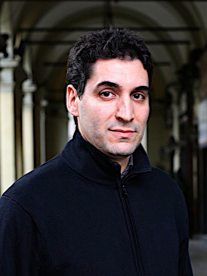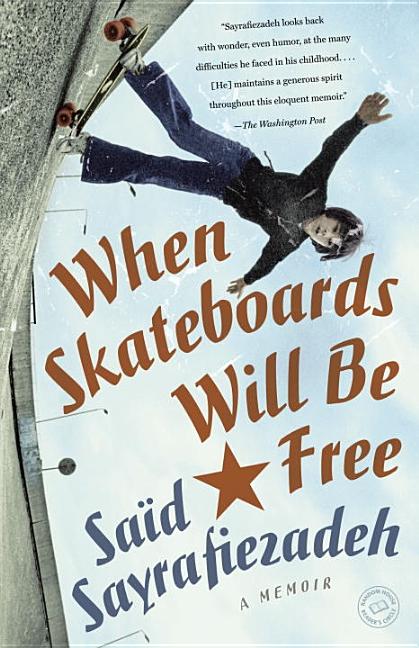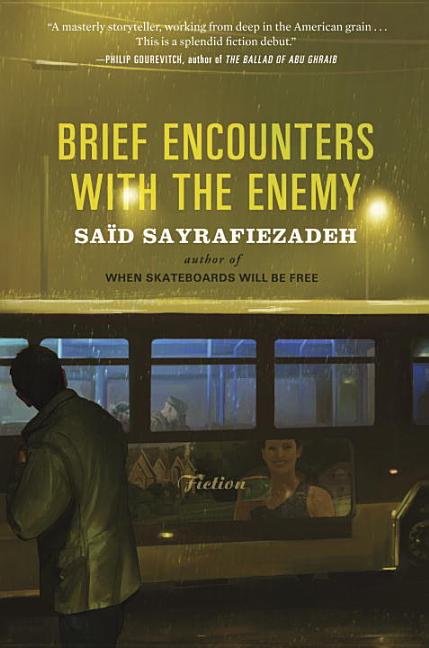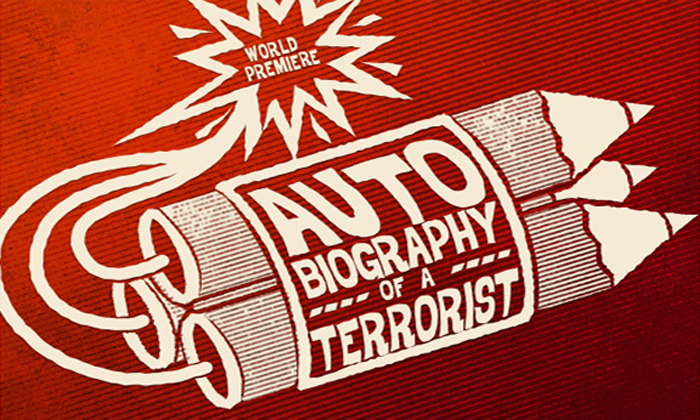Saïd Sayrafiezadeh was born in Brooklyn and raised in Pittsburgh by his Jewish American mother and his often absent Iranian father, both of whom were active members of the Socialist Workers Party. He is the author, most recently, of the story collection, Brief Encounters With the Enemy (2013), shortlisted for the 2014 PEN/Robert W. Bingham Fiction Prize, and the critically acclaimed memoir When Skateboards Will Be Free (2009), selected as one of the ten best books of the year by Dwight Garner of The New York Times. His short stories and personal essays have appeared in The New Yorker, The Paris Review, Granta, McSweeney’s, The New York Times, and The Best American Nonrequired Reading, among other publications. He is the recipient of a 2012 fiction fellowship from the Cullman Center for Scholars and Writers. Saïd lives in New York City with his wife, the artist and designer Karen Mainenti, and teaches creative writing at Hunter College and New York University, where he received a 2013 Outstanding Teaching Award.

-
When Skateboards Will Be FreeA Memoir of a Political Childhood
My father believes that the United States is destined one day to be engulfed in a socialist revolution. All revolutions are bloody, he says, but this one will be the bloodiest of them all. The working class—which includes me—will at some point in the not-so-distant future decide to put down the tools of our trade, pour into the streets, beat the police into submission, take over the means of production, and usher in a new epoch—the final epoch—of peace and equality. This revolution is not only inevitable, it is imminent. It is not only imminent, it is quite imminent. And when the time comes, my father will lead it.
 When Skateboards Will Be Free: A Memoir of a Political Childhood
When Skateboards Will Be Free: A Memoir of a Political Childhood -
When Skateboards Will Be FreeA Memoir of a Political Childhood
Down Forty-second Street I ride, past the library, past the pizza shop, past Bryant Park that’s filled with office workers eating lunch. The iron fencing is gone now, as are the high hedges, as are the drug dealers and prostitutes. There is no man being terrorized with sticks, there is no lost little boy standing on the corner. People sit on the plush green grass ringed by flowers. A sign announcing knitting classes in the park on Wednesday evenings completes the end of an era.
 When Skateboards Will Be Free: A Memoir of a Political Childhood
When Skateboards Will Be Free: A Memoir of a Political Childhood -
When Skateboards Will Be FreeA Memoir of a Political Childhood
My father called the night before he moved back to Iran. I was in bed with the lights off when the phone rang. Our phone never rang, and the sound startled me out of the early stages of sleep. Through the bedroom door I could hear my mother answer, and by the voice she was using I knew immediately that it was my father on the other end. It was a confident voice with a touch of breeziness, the kind of voice that one might use at a job interview to impress a potential employer. There was no other time when I heard that voice.
 When Skateboards Will Be Free: A Memoir of a Political Childhood
When Skateboards Will Be Free: A Memoir of a Political Childhood
“[Saïd Sayrafiezadeh is a name] that you may want to remember . . . if this exacting and finely made first book is any indication . . . [He] writes with extraordinary power and restraint . . . [His] prose has some of [Isaac Bashevis] Singer’s wistful comedy, and good deal of that writer’s curiosity about the places where desire, self-sacrifice and societal obligation intersect and collide.” —The New York Times [on When Skateboards Will Be Free]
“Sayrafiezadeh looks back with wonder, even humor, at the many difficulties he faced in his childhood . . . [He] maintains a generous spirit throughout this eloquent memoir.” —The Washington Post [on When Skateboards Will Be Free]
“In his memoir, Sayrafiezadeh told the remarkable tale of a childhood steeped in doomed dogma. His stories . . . offer something more: a searing vision of his wayward homeland, delivered not in the clamoring rhetoric of a revolutionary, but in the droll monologues of young men who kill because they lack the moral imagination to do otherwise.” —Steve Almond, The New York Times Book Review [on Brief Encounters with the Enemy]
Selected Works

- Print Books
- Find your local bookstore (via IndieBound)
- Bookshop



The Whiting selection committee called this the most engaging of autobiographies — “intelligent, funny, utterly unsmug and unpreening. The book compellingly depicts the Orwellian truth about how childhood can be a world where it’s impossible to be good, a realm in which Sayrafiezadeh is often aware that whatever thought he’s thinking is the wrong thought to be having. The coolness and apparent detachment of the writing begin to feel like clues to the internal strategies that allowed him to survive.”